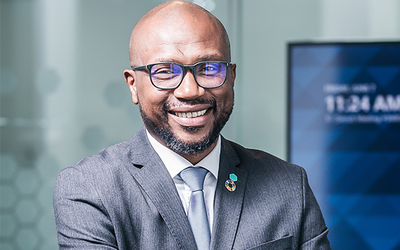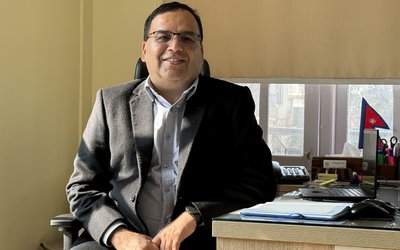More on Interview





Pirkko-Liisa Kyöstilä, Chargé d'Affaires a.i of Finnish Embassy, has been in Nepal for more than two years. As Finland has been supporting Nepal’s development projects, the Charge’ d’ Affaires spoke to KESHAB POUDEL on various issues. Excerpts:
Finland has been supporting Nepal in its efforts to uplift the livelihood of the poor and marginalized communities. How do you evaluate the progress?
This is a core issue of our development efforts, and one that is really hard to measure. There are some great examples of progress, for example, in poverty stricken areas of Far West, where we have attached health and hygiene education and income generation aspects to a water management project. Income generation, for instance, has been modest when counted in rupees, but when compared to the level before the project, it has been eight fold. That is a good progress. However, as we know, majority of the Nepalese people remain poor and results can’t be expected overnight.
In which areas has Finland been providing assistance?
Finland operates in Nepal in natural resource and education sectors, in which Finland has good international reputation, lengthy experience and significant added value to give. These areas are highlighted in Finland’s development cooperation policy, and they are also areas that Nepal has prioritized in their own development plans.
You are also supporting rural drinking and sanitation programs in far west and mid-western region, what is your impression about the projects?
The results of our three programmes in water, sanitation and hygiene sector have been positive. The old Rural Water Supply and Sanitation Support Programme, the so-called Lumbini Programme, which ended in 2004, was recently evaluated. The evaluation team visited randomly eight villages and one concrete outcome of their evaluation was that all the schemes were technically and organizationally functional after 6 to 13 years of their construction. That means that the water users’ committees are still collecting enough money among their members for the operation and maintenance of the water supply system.
What do you think is needed now?
The evaluation assessed also the cost efficiency of the programme. The total investment per person has been 12 Euros, which is about 1100 rupees. We can therefore say that with 1100 Nepalese rupees a person can have drinking water for ten years. We do not have similar type of assessment of the two on-going drinking water programmes. In them, the cost of construction per capita is much higher especially in the mentioned programme in the hill and mountain areas of Far West due to the smaller population and extremely difficult transport conditions. However an average investment of 65 Euros, about 6000 rupees, for water and sanitation facilities per head is not bad. In addition these schemes have provided the villages with sanitation and hygiene, which are the core components of these programs.
Along with water and sanitation, which other areas are you focusing for support?
Finland is one of the nine development partners providing pool funding for the School Sector Reform Program implemented by the Ministry of Education. We also assist in setting up environmental administration for six districts in the eastern part of Nepal. As a separate project we fund constructions of an international standard landfill site in Biratnagar with development of a sustainable regional solid waste collection and management system. The landfill site will serve Biratnagar, Itahari and Dharan municipalities as well as the industries in Morang–Sunsari industrial corridor and the surrounding countryside.
Are you also supporting Climate Change related projects?
Yet another important aspect of Finnish assistance is related to climate change. Finland is supporting two early warning projects, one at national level to strengthen the capacity of Department of Hydrology and Meteorology of the Ministry of Environment. The other project is regional, involving also Bangladesh, Bhutan, China, India, and Pakistan. It is called “Establishment of a Regional Flood Information System in the Hindu Kush-Himalayan” and it is carried out by The International Centre for Integrated Mountain Development (ICIMOD) in close collaboration with the World Meteorological Organization (WMO). The motto of the project is to let the information travel faster than flood waters, in other words it concentrates on exchange of meteorological information between the six countries to prevent flood destruction.
Is your country also supporting the Ministry of Forest?
Finland has recently started to assist the Ministry of Forest and Soil Conservation to do the national forest resources assessment in Nepal. The purpose of the project is to improve the provision of adequate forestry data and its processing for national forest policy development and for national level forestry sector decision making.
Do you also support other areas?
We also support through UN specialized organizations FAO and IFAD a special approach to community forestry aimed for the poorest of the poor in Nepal. Leasehold Forest and Livestock Development Program (LFLDP) has a special emphasis on agro-silvi-pastoral practices. In leasehold forestry, degraded forest land is rented to the poor people for 40 years with an option to renew the contract for another 40 years.
What is Finland’s total assistance to Nepal?
Finland’s total assistance to Nepal in 2010 is about 20 million Euros. It is important to note that one third of it is channeled through NGOs. There are 23 Finnish NGOs working in the country, mostly in education, health, social services and environmental sector. Some of the cooperation projects between a Finnish NGO and a Nepali NGO are fairly big, like Indrawati basin management project, which involves also the government agencies.
Nepal has been now passing through a very critical phase in constitution writing and restoring peace, how has Finland been supporting Nepal in this regard?
Finland has been funding Nepal Peace Trust Fund (NPTF) by 3 million Euros since the establishment of the Fund. Initially the support was directed to implementation of elections, and some of the funds are spent in small scale projects in the camps of the former combatants. The fund also supports improvement of the police station network. Future assistance will support development of the NPTF according to the recommendations of a recent external evaluation.
Is Finland also supporting on human rights areas?
Protection of human rights plays a crucial role in peace building. Finland has provided funds both to National Human Rights Commission and Office of the High Commissioner for Human Rights. We also support capacity development of Nepal Human Rights Commission through two projects implemented by UNDP. Finland has also provided technical assistance for example by providing forensic medicine expertise.
How are you supporting the constitution making process?
Development of constitution has been supported in collaboration with International IDEA by provision of expert commentaries on the concept notes, inter-committee workshops, inter-party dialogue on relationships between the Head of State and other institutions, case studies on relationships between the Head of State and other state institutions from a comparative perspective. There was also a study visit by Nepal’s President’s Office to Finland for interactions with their Finnish colleagues to learn about established procedures and good practices evolving and regulating institutional relations of the President with other state institutions and authorities.
How do you look at Nepal's development challenges?
The development issues that Nepal has to deal with are not simple. The new MDG progress report gives valuable information on how close Nepal is in achieving the MDG targets by 2015. It is evident that sustainable development cannot be reached without further progress in economic growth, employment, equality and inclusion. If we look at the private sector, the industrial development in Nepal looks quite gloomy. It is very difficult to attract foreign investors to establish industrial production – or any other kind of production - if there is no electricity in the country. Therefore, I would find also energy auto-sufficiency as a major challenge for Nepal. I do not see it only as the necessity for Nepal’s further development but also as an obligation of Nepal; as Nepal has ample resources of clean water energy within the country, it should be developed to the extent, where there’s no need for imported and other less clean sources of energy.
What in your opinion should be Nepal's top priority?
Corruption is still a persistent and ever growing problem here, and it severely hinders the country’s development efforts. It has to be rooted out, if the country wants to progress.
It is also worrying that in spite of continuing efforts, the peace process has remained slow and tensions, deep differences and mistrust among the parties have persisted. Resolving the future of the two armies and completing the drafting of new constitution are top priorities. The major differences on core elements such as the future form of government and the country’s federal structure have remained unresolved. The lack of political will and trust will continue to hinder all aspects of development if no solution is found.
What do you say of the recently launched Indrawati basin project with WWF-Nepal and Water and Energy Commission?
It is a very important and timely initiative and actually one of the biggest NGO projects Finland is financing in Nepal. It is also very special in that it involves both NGOs and government agencies. I hope it will prove to be a successful project.
How do you look at the ongoing process of inclusion in Nepal?
In our programs we are normally speaking of gender and inclusion at the same time calling it GESI (gender and social inclusion.). It is clear that inclusion is the core issue in the ongoing peace process. I understand that in the Nepal’s context inclusion can be a bigger challenge than gender. It is easier to include women to activities of the program than to include the low caste or casteless segments of the society.
How do you look at the issue of integration of Maoist combatants?
Another, very topical aspect has to do with the former combatants. Finland strongly supports the objectives of the UN Security Council resolution 1325 on “women and peace and security”. The special needs of women must be taken into account in disarmament, demobilization and reintegration. Women should be seen as an asset for peace and development. Inclusion is definitely an area where there remains a lot to do. Even if legislation would support it, attitudes and practices are not easily changed.







